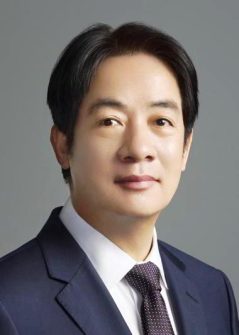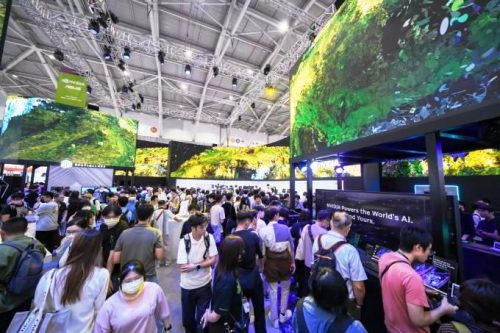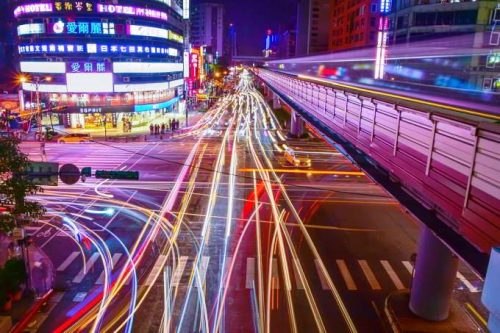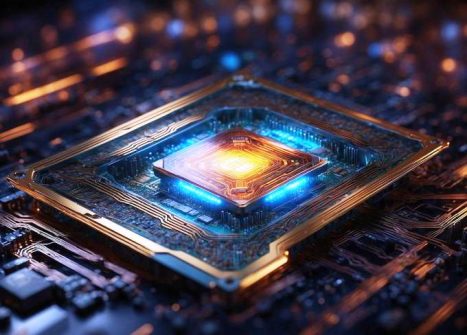Taiwan. At the forefront of AI.

Taiwan produces nearly two-thirds of the world’s Artificial Intelligence (AI) servers and plans to continue its investments and partnerships to remain at the forefront of AI research and innovation applicable
to many industries.
In full bloom, artificial intelligence promises exponential developments in the semiconductor industry that Taiwan cannot ignore, indeed. This is demonstrated by the enthusiasm of the major names in the sector who have recently announced future investments in Taiwan, to establish their own research and development centres in artificial intelligence – TSMC, Nvidia, Infineon – and take advantage of the rich and mature

President of Republic of China (Taiwan), Lai Ching-te. Photo: President Office
Taiwanese ecosystem in terms of innovation, training and retention of talent, but also of solid industrial clusters.
This leadership of Taiwan, which makes it almost inevitable, does indeed attract the interest of other countries, as Frank Paris, director of the French office in Taipei, explains to the public radio Radio Taiwan International, and emphasises that what is happening in Taiwan in terms of artificial intelligence is not limited to research but is already applied to industries and everyday objects.The new Taiwanese president Lai Ching-te, who took office on May 20, is also the herald in person of the industrial development of AI. In his opening speech at Computex 2024, Asia’s largest computer expo and this year’s AI technology trade show, Lai Ching-te extolled Taiwan’s technological strengths and shared his goal of “making good use of Taiwan’s advantages, promoting the development and industrialisation of AI, and making Taiwan an AI island, so that Taiwan strengthens its position in this new era and for the well-being of its people.”
This stated goal of Taiwan’s new president is part of efforts in recent years to develop the best possible state-level arrangements to encourage innovative AI development.
The government has allocated an unprecedented budget of 300 billion Taiwan dollars (the equivalent of 9 billion Euros) for a 10-year national innovation program aimed at integrating artificial intelligence into the economy by 2033, starting with electronic chips and integrated circuits.
Omnipresence of AI
The era of artificial intelligence is already very present in several key sectors, starting with manufacturing where artificial intelligence is integrated into production systems to improve efficiency and reduce production costs. It is a tool used in automation and robotization, but also in management and services.
Taiwan is experiencing the emergence of company-run AI robots that can perform various household tasks, help at home and even “converse” with lonely elderly people, a challenge given the ageing population. In the healthcare sector, the management of public hospitals also uses AI thanks to deep learning, but the latest advances are mainly concerned with helping in the accuracy of medical diagnoses.

Taipei. Computex 2024. Asia’s largest computer expo. Showground. Photo: Computex Office
The transportation sector is increasingly dependent on advanced AI technology with the widespread use of intelligent transportation systems and the increase in intelligent autonomous vehicles. Agriculture is no exception with artificial intelligence contributing to the optimal management of resources and the improvement of crops. On the innovation front, research institutions are collaborating with academia and industry, startups and incubators, so as not to remain on the sidelines, but to take a leading role in innovative projects and AI advances.It is therefore a whole dynamic and diversified ecosystem, already well underway, which allows Taiwan to move calmly towards this goal of a regional and global “AI Hub”.
But the challenges are as great as these ambitions, starting with the dangers linked to the extremely rapid development of artificial intelligence technologies, whose use or repercussions still elude the specialists who develop them, either in Taiwan or elsewhere.

The transportation sector is increasingly dependent on advanced AI technology. Pixabay
Hence the urgency of regulating their development and uses, since the field of possibilities is vast. Therefore, for two years, the island has been trying to develop its own generative AI engine TAIDE (Trustworthy AI Dialogue Engine), under the auspices of the National Science and Technology Council, to ensure a reliable and transparent database to avoid the disinformation trap and promote the truthfulness of content, especially in the face of numerous false information spread mainly by China and affecting Taiwanese society. In terms of regulation, legal work is currently underway.
Necessary norms, but late in coming
While there are already specific initiatives for the use of AI, legislation is needed to regulate the scope of related technologies that cover different fields and affect different laws.Bills and guidelines are currently being considered, but they do not legally or directly regulate AI in Taiwan. Since 2019, lawmakers have drafted several versions of AI bills, but none have yet been submitted to parliament.

Taiwan to become a regional and global AI hub. Pixabay
In March 2023, a private foundation, the International Artificial Intelligence and Law Research Foundation (IAILRF), for its part, drafted a key bill to regulate the development of AI. At the same time, the government is formulating its own approach to AI supervision, which is due to be submitted at the end of the year, knowing that the various bills raised will have to be examined in Parliament and approved by lawmakers before they are actually adopted. Therefore, there is still uncertainty about the final version and timing of the adoption of a law regulating the use of AI in Taiwan.
However, the government has already been acting through five-year-old directives and its first guidelines to regulate research and development in AI technology, followed by the “Taiwan AI Action Plan 2.0 2023 to 2026” (in Mandarin) and guidelines governing the use of generative AI by government agencies and related institutions.

Taipei. Street in Banqiao district. The need for regulation of AI technology research and development. Pixabay
The need to regulate AI is urgent in the face of excesses and the dangers of possible abuses. This observation, reiterated by more and more voices around the world, with Pope Francis at the forefront, is echoed in the concerns shared by Taiwanese authorities: “We must establish safeguards against the authoritarian dangers of certain uses of AI that harm democracies, the values of freedom and human rights,” as former head of state Tsai Ing-wen wrote in response to the Pope earlier this year. The related legal texts currently being developed in Taiwan aim, in this sense, to regulate applications. The need to regulate AI is urgent in the face of abuse and the dangers of possible misuse. Artificial intelligence cannot compete with natural stupidity. (Open Photo: Pixabay)
François-Xavier Boulay/Ad Extra



